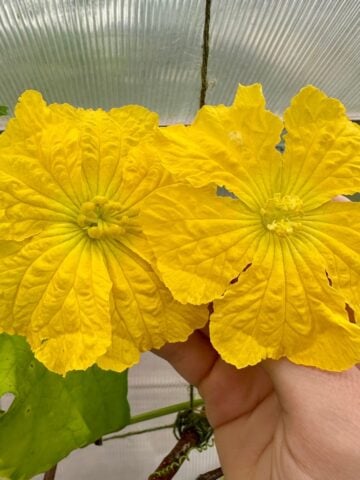Did you know that some plants don't like coffee grounds. Before you start spreading coffee grounds around your plants read which plants don't like coffee grounds.

Most gardeners know that adding coffee grounds around their tomato plants can help them grow, and it's a great way to use something that would normally go in the trash.
However, most gardeners don't realize that some plants don't benefit from coffee grounds. In fact, some plants are harmed by the coffee grounds.
Here is a list of common vegetable plants and flower plants that don't prefer coffee grounds.
Vegetable Plants That Don't Like Coffee Grounds
- Spinach
- Summer Squash
- Peas
- Asparagus
- Beans
- Brussel Sprouts
- Kale
- Cauliflower
- Lettuce
- Beets
- Broccoli
Flower Plants That Don't Like Coffee Grounds
- Lavender
- Geraniums
- Clematis
- Lilacs
- Bachelor Button
- Bee Balm
- Poppy
- Sunflower
- Sweet Pea
- Tulip
Why do these plants dislike coffee grounds
You may be wondering why these plants should not be given coffee grounds. It all boils down to the soil pH.

Coffee grounds have a low pH number which means that they are acidic, so plants that like alkaline (or basic) soils are going to suffer from the acidic coffee grounds.
Plants like blueberries and tomatoes love acidic soils, so those plants should be given coffee grounds.
What is my soil pH
Before you add any coffee grounds to your garden I recommend you test your soil's pH. This will tell you if you have acidic or alkaline soil.
You can use this simple at home pH test. I have this exact one and it is very easy to use.
If your garden's soil pH is above a 7 then coffee grounds will help bring the soil back to normal. If your garden's soil pH is below a 7 then coffee grounds will make it more acidic and they are probably not needed.
I have neutral soils with a pH hovering around a 7. This is great for most plants however for plants that like it a bit more acidic I amend the soil with spent coffee grounds.
If your soils are very acidic I would not recommend adding coffee grounds to any of your plants. For soils with a neutral or basic soil coffee grounds may be helpful for some plants.
How To Know If A Plant Needs Coffee Grounds
The best way to tell if a plant would benefit from coffee grounds is to find that plant's optimum pH range. If the pH range is below a 7 then coffee grounds will benefit it.
This list of plants and their preferred pH range is a great resource to find which plants will benefit from coffee grounds.
Should I use spent or fresh coffee grounds
It is very important that you do not use fresh coffee grounds in your garden! Coffee grounds that have not been brewed have a pH between 4 and 5 (very acidic).
If you use unbrewed coffee grounds in your garden you will lower your soil pH fast. However, after coffee grounds have been brewed the pH drops to slightly acidic.

Spent coffee grounds have a pH around 6 so they are safer to use in the garden. So, always use spent coffee grounds, instead of fresh ones, in the garden.
Other Uses For Coffee Grounds In The Garden
Using spent coffee grounds in your garden is a great way to use something that is normally considered as waste. Here are some other ways you can use coffee grounds in your garden.
Compost Them
Coffee grounds are a great addition to your compost bin. Once coffee grounds are composted their soil pH is no longer an issue.

Repel Insects
Coffee grounds naturally repel some insects and rodents. Sprinkle coffee grounds in your yard and garden to repel pests.
Worm Bin Bedding
If you have a worm bin you can use spent coffee grounds as a natural bedding material.
Final Say On Coffee Grounds
Spent coffee grounds can be great for plants that like acidic soils. You should not use coffee grounds around plants that like a neutral or alkaline soil.
Before you use coffee grounds around your plants make sure to test your soil's pH.
Pin This!






Leave a Reply